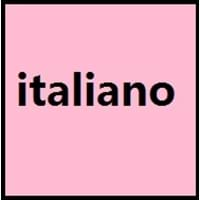Xhosa vs Italian
- Xhosa has 15 click sounds, borrowed from the khoi-khoi and san languages of the South Africa.
- The same sequence of consonants and vowels can have different meaning when said with different tones, so Xhosa is tonal.
- One of the most romantic and melodic language in the history of the world is Italian.
- Italian Language is in the top three of the most widely spoken European languages in Europe.
Xhosa and Italian Language History
Comparison of Xhosa vs Italian language history gives us differences between origin of Xhosa and Italian language. History of Xhosa language states that this language originated in 16th Century whereas history of Italian language states that this language originated in 960 BC. Family of the language also forms a part of history of that language. More on language families of these languages can be found out on Xhosa and Italian Language History.
Xhosa and Italian Greetings
People around the world use different languages to interact with each other. Even if we cannot communicate fluently in any language, it will always be beneficial to know about some of the common greetings or phrases from that language. This is where Xhosa and Italian greetings helps you to understand basic phrases in Xhosa and Italian language. Xhosa word for "Hello" is Molo or Italian word for "Thank You" is grazie. Find more of such common Xhosa Greetings and Italian Greetings. These greetings will help you to be more confident when conversing with natives that speak these languages.
Xhosa vs Italian Difficulty
The Xhosa vs Italian difficulty level basically depends on the number of Xhosa Alphabets and Italian Alphabets. Also the number of vowels and consonants in the language plays an important role in deciding the difficulty level of that language. The important points to be considered when we compare Xhosa and Italian are the origin, speaking countries, language family, different greetings, speaking population of these languages. Want to know in Xhosa and Italian, which language is harder to learn? Time required to learn Xhosa is 44 weeks while to learn Italian time required is 24 weeks.





